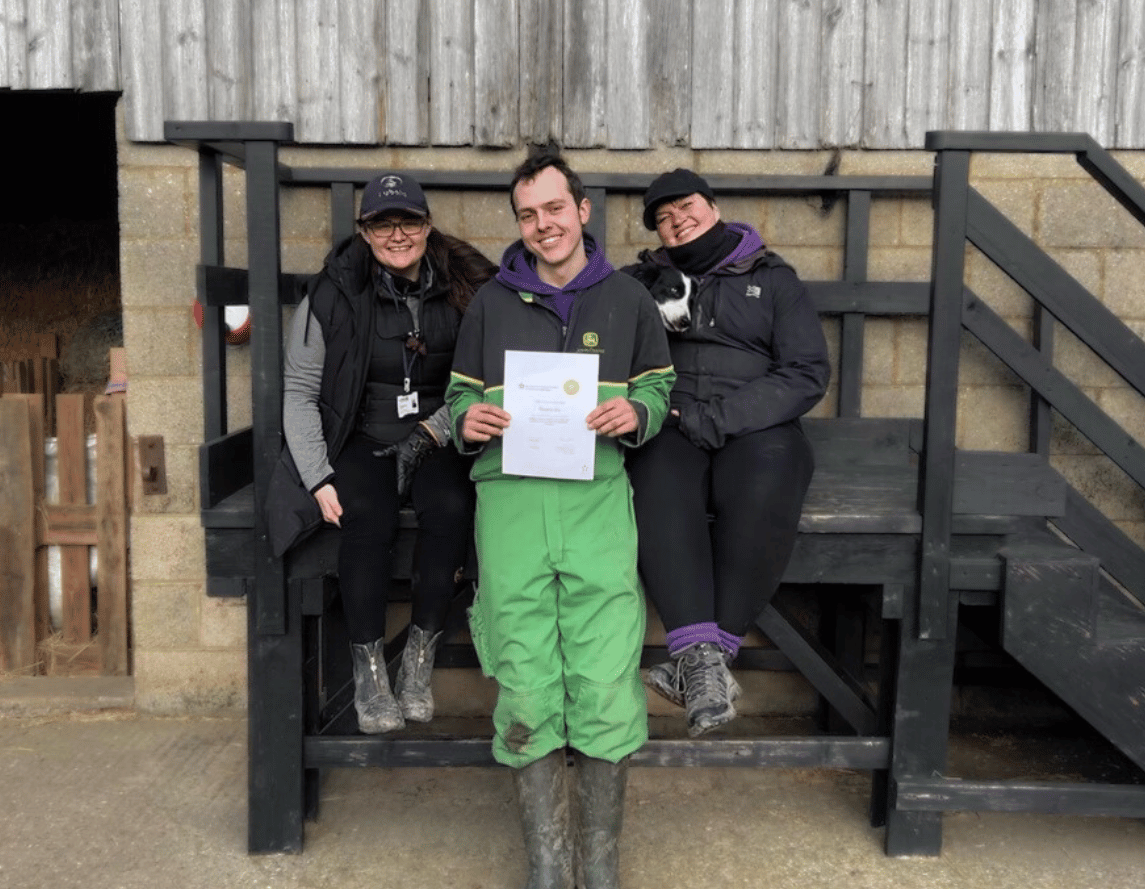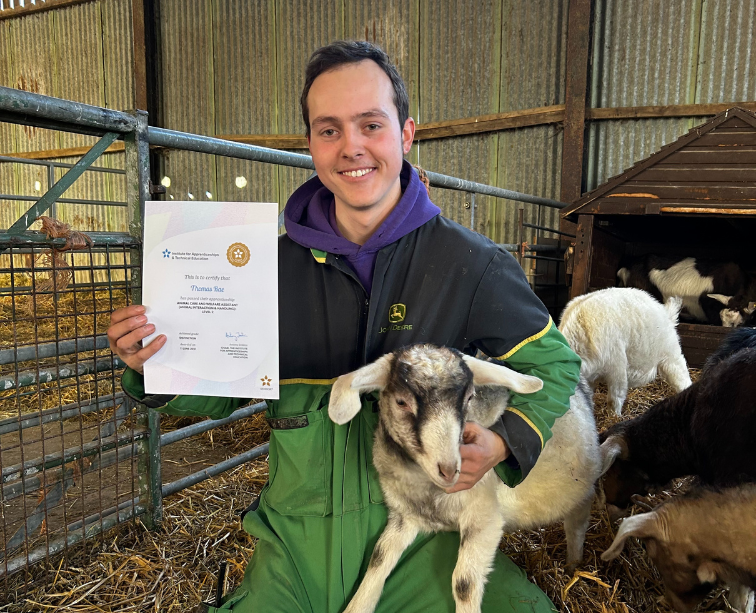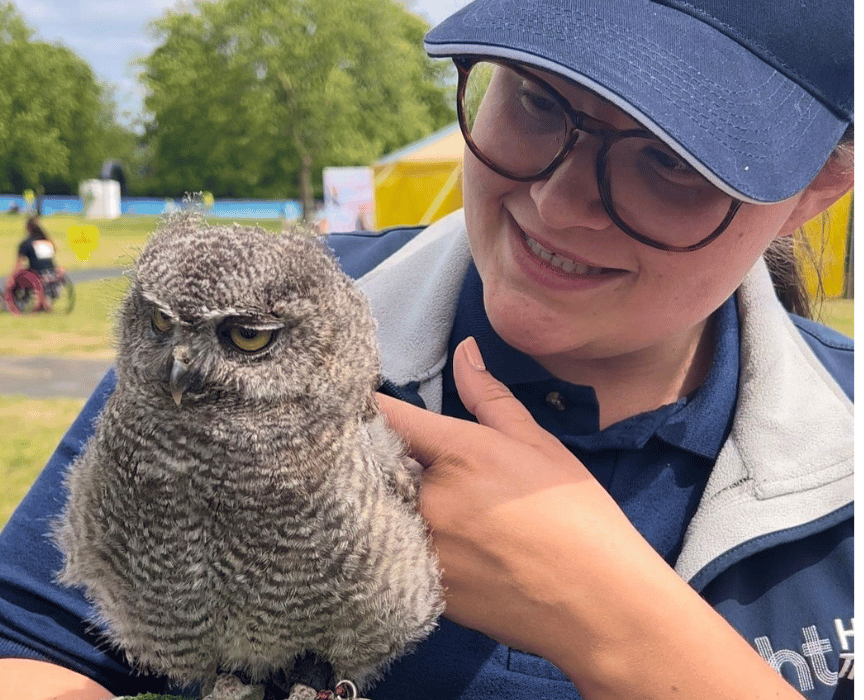Animal Care and Welfare
For those considering working with animals, our animal care qualifications are a great place to begin. With training all completed in a chosen workplace, our wide range of course options will set individuals on the path to success, ensuring that the skills and knowledge they develop are focused on their career aspirations. We can tailor the qualification around interaction and handling, movement and transport, rehoming, wildlife and rehabilitation and even reception duties.
With support from the selected employer and specialist Trainer Coach, an animal care qualification will enable participants to thrive in their dream animal care job.
What to expect studying our Animal Care and Welfare qualifications
We support learners across a wide variety of locations, from wildlife parks to animal day care centres, and understand the requirements of employers in the animal care industry.
Our dedicated Trainer Coaches have all worked extensively within animal care and will guide learners throughout the duration of the qualification. Working closely with the employer will ensure that participants embed their knowledge through their daily work. If required, we will also be able to assist apprentices in developing their maths and English skills to enable them to gain a recognised qualification in these alongside the apprenticeship.
What will be learnt during our Animal Care qualifications
At Level 2, apprentices will gain hands-on experience whilst establishing the responsibilities tending to the animals in their care. They will learn how to respond to animal first aid, and monitor and report on the health and welfare of animals in line with current legislation. They’ll also enhance their knowledge on the species/breeds they work with, their behaviours and the different methods required to meet the animals’ needs.
Level 3 expands an individual’s knowledge and skills to enable them to confidently manage the care and welfare of animals and staff in a variety of settings. They’ll develop people and team supervision strategies, including mentoring and training, whilst understanding the legal health and safety obligations of animal welfare and how these impact their organisation.
Accredited qualifications across a range of levels
We are extremely fortunate to work with excellent animal care employers throughout England to support their staff to gain this valuable qualification. For those who are looking to work with animals but need help finding the right job role, then please get in touch and we can help.
The Animal Care and Welfare apprenticeships centres around the wellbeing of all animals. This accredited qualification is part of our offering from a range of recognised animal care courses. We also offer Level 2 Dog Groomer and Level 3 Keeper and Aquarist apprenticeships for those specifically in these industries.
Animal Care and Welfare Manager Level 3
To download the brochure please enter your email address below:

" Completing my Haddon Training apprenticeship has helped me go from having high anxieties and barriers to my learning, to gaining a distinction, feeling supported, confident and being employed full time as head lad. It has been invaluable for me. "

What happens after completing an Animal Care apprenticeship
This qualification ensures that learners have a solid foundation of knowledge and abilities, along with a recognised and respected qualification to advance their career. Whether learners choose to stay with their employer and continue progressing through development programs there or move into a more advanced role elsewhere, they will have gained the skills needed to start their vocation.
For those looking to support others who are beginning their journey, we offer a Team Leader apprenticeship. This innovative qualification develops those in a guidance role as a step towards teaching or management.
Animal Care apprenticeships FAQs
You will need to be passionate about the welfare, care and conservation of animals. We offer animal care qualifications to suit your skill level and career aspirations, and we can help you secure the ideal role.
To begin an apprenticeship with animals you don’t require any formal qualifications, just a strong desire to learn. We can support you to gain maths and English qualifications if you have struggled with these in the past, as well as develop your IT and wider curriculum skills, such as CV writing. This is in addition to the core skills and knowledge you will develop specifically in animal care.
The world of animal care is vast and an animal care and welfare apprenticeship is a brilliant way to embark on your career whilst deciding what area of specialism you may wish to later follow. On completion of your qualification, you may wish to pursue a career in dog training, veterinary medicine, farmer or zoologist, to name a few.
I am a learner
Start your journey and apply for an apprenticeship, or upskill in your current role to advance your career.
I am an employer
We're here to support you with staff expansion, or knowledge enhancement for existing staff.
I am a parent
As an apprentice, your child will have all the benefits of a paid employee, whilst studying for their qualification.


